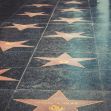The heirs of a Grammy and Academy Award-nominated composer of a Disney movie song lost their battle for DVD royalties when a Court of Appeals reversed a Los Angeles Superior Court’s decision to give them over $1 million in jury awards and damages.
In a unanimous opinion by Presiding Justice Dennis M. Perluss of the Second Appellate District of the California Court of Appeal on July 21, a judgment was entered in favor of Disney and Wonderland Music Company, its music publishing affiliate (collectively called Disney). The opinion explained that its ruling was “dependent on Wonderland receiving payment” and was based on contract language that granted Disney “sole discretion” to decide how to use the material, including whether fees should be charged for home entertainment use.
The ruling was the result of a contract dispute between Disney and the heirs of Terry Gilkyson, the co-composer of the hit song Bare Necessities that was featured in the 1963 film The Jungle Book, as well as six other songs that were written for the movie, not used in the film, but used later when they were re-released as a bonus feature on the movie’s DVD. For example, one of the bonus features included a “Bear-E-Oke sing-along” that displayed Gilkyson’s lyrics over a movie clip. The iconic film, featuring the beloved boy Mowgli and his friend Baloo, a singing bear, was based on stories by Rudyard Kipling.
Gilkyson’s three adult children sought royalties from the home entertainment releases of the film, claiming they were contractually required. A trial court jury awarded them $350,000, and the court gave them an additional $699,310 in declaratory relief and damages for the time between the jury verdict and the expiration of the songs’ copyrights.
The Court of Appeal considered several issues, both from Disney and the composer’s heirs. Disney argued that the contracts between them and Gilkyson provided that they pay royalties “only in an amount equal to 50 percent of net sums received by Wonderland” for rights to material Gilkyson composed. After July, 2009, no funds were received from home entertainment releases on DVDs or other movie delivery forms. They also argued that the court erred in awarding any contract-based damages.
The heirs cross-filed an appeal that argued the trial court should not have denied their requests for the interest accrued prior to the judgment, as well as for a new trial on the issue of damages, claiming what they received was inadequate. They said they would drop this request if the damage award was allowed to stand. In 1968, Gilkyson was nominated for an Academy Award for Best Original Song for Bare Necessities and a Grammy with co-composer the Sherman brothers for Best Childrens’ Album.
The backstory of the suit began in 1963, when Disney commissioned Gilkyson to write several songs that were for “potential use” in the upcoming film, then in production. Each song had its own contract. The one for Bare Necessities gave the composer $1000 upfront and five cents for each piano or orchestration copy sold, 50% on each orchestral foreign copy sold, and 50% of the net amount received by its publisher due to “licensing and other disposition” of the “mechanical reproduction” of the song.
Subsequent paragraphs assigned Disney all rights to “revenue” from television and similar media and contained the disclaimer that gave Disney “sole discretion regarding future use.” It plainly states, “You shall have no interest in any of the material other than your right to receive the royalties specifically agreed herein to be paid to you.”
Gilkyson received his share of royalties between 1963 and 1991, but none after that date. The composer died in 1999. The Jungle Book was subsequently released on VHS in 1991, on DVD in 2007, and later on Blu-Ray and in other digital formats. In 2013, Gilkyson’s heirs began their lawsuit, outlining their views about Disney’s contract obligations.
Disney at first demurred due to the expiration of the statute of limitations, as well as a denial of any contractual obligations stemming from the use of the songs in any “audiovisual medium.” The trial court sustained Disney’s demurrer. The heirs amended their complaint in 2014 arguing that The Jungle Book 2, which came out in 2008, was accompanied by a re-release of the film for home entertainment in 2014. The trial court, once again, sustained Disney’s demurrer based on the contract language.
The appeals court then reversed the dismissal saying that the “continuous accrual doctrine” applied to the contract claims of the heirs. They decided that Disney’s contractual obligation was “unquestionably a continuing one.” While some claims were still barred by the statute of limitations, the case was sent back to the trial court.
Before the trial began, Disney filed a motion for summary judgment that was denied. Disney’s motion featured a new interpretation of the contract language that contained the words “mechanical reproduction,” which led them to argue that all the home entertainment products did not fit this definition because “audio visual media” are not technically mechanical reproductions. The heirs countered that synchronized music and related images did fit that definition.
They also disputed Disney’s argument that they were not due royalties because Wonderland Music never paid Disney for the use of the Gilkyson songs. The heirs said that when Disney affiliates receive money, Disney does, too. They said Disney’s argument justified “self-dealing,” since the main company obviously received money from whatever Wonderland Music did. Thus, they owe royalties.
At trial, both sides presented expert testimony regarding the proper definition of mechanical reproduction and the correct calculation of royalties. After the jury award, a year of “briefings, rulings and tentative rulings” followed regarding appropriate declaratory relief and damages. The final amount awarded was $699,310. Disney immediately appealed.
The opinion, written by Perluss, agreed with Disney’s undisputed “net receipts contract interpretation” argument, which explained that the contract plainly limited royalties “to those uses for which Wonderland received money” and the heirs had failed to prove that Wonderland received money from home entertainment sales. Perluss was not persuaded by the heirs’ “self-dealing” argument, nor their contention that they were due royalties on what Disney “should have collected,” not what they actually did collect. There was no requirement of an “intercompany licensing fee,” he wrote. No evidence was provided about the parties’ intent to abide by anything except the contract language when they signed it in 1963.
The contract language also gave Disney “sole discretion” regarding future use. And no evidence presented by the heirs persuaded the court to look to anything other than the plain language of the contract. The fact that it was signed in 1963, well before an explosion in home entertainment technology took place, was not discussed.






